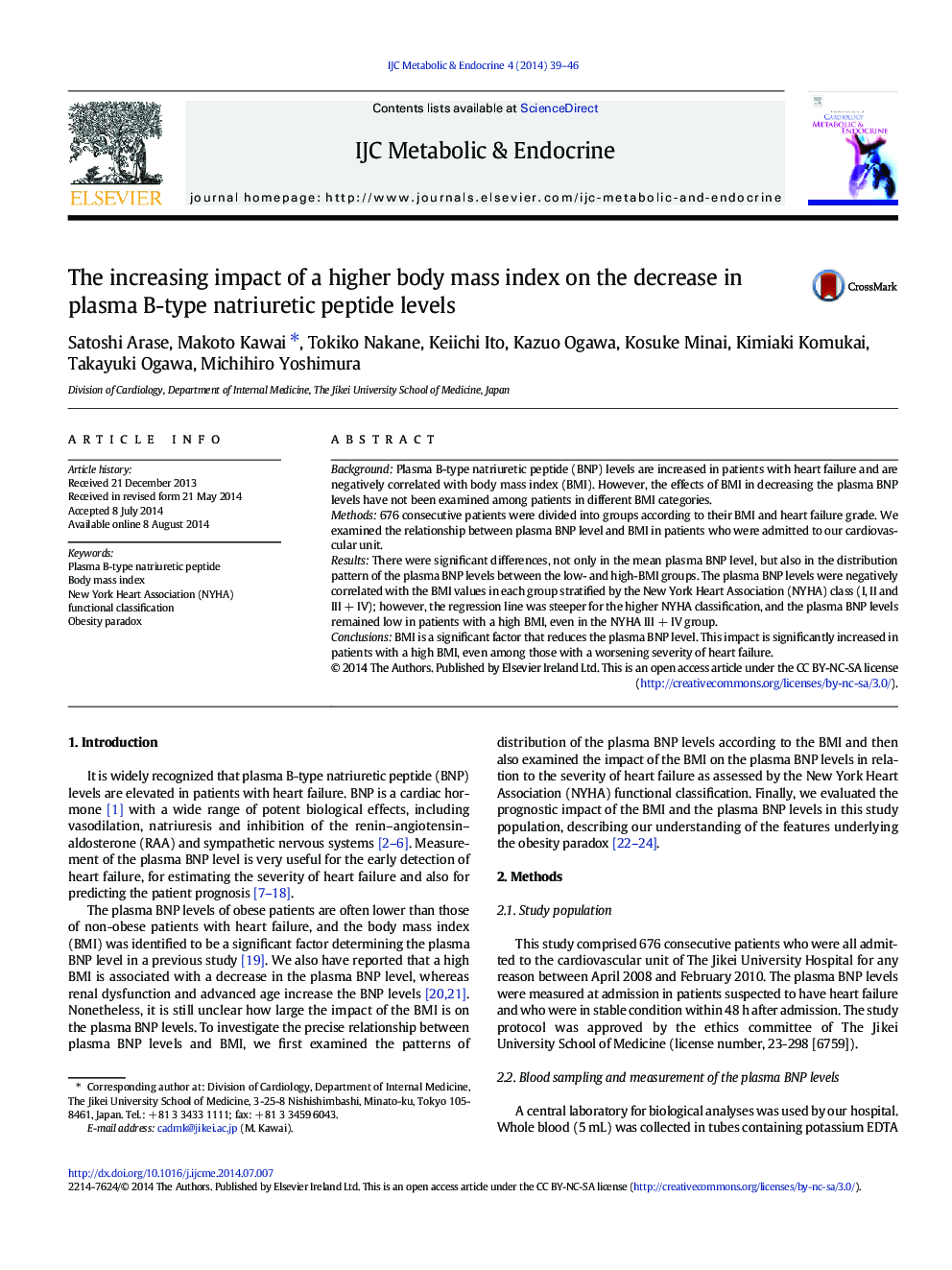| Article ID | Journal | Published Year | Pages | File Type |
|---|---|---|---|---|
| 2927281 | IJC Metabolic & Endocrine | 2014 | 8 Pages |
BackgroundPlasma B-type natriuretic peptide (BNP) levels are increased in patients with heart failure and are negatively correlated with body mass index (BMI). However, the effects of BMI in decreasing the plasma BNP levels have not been examined among patients in different BMI categories.Methods676 consecutive patients were divided into groups according to their BMI and heart failure grade. We examined the relationship between plasma BNP level and BMI in patients who were admitted to our cardiovascular unit.ResultsThere were significant differences, not only in the mean plasma BNP level, but also in the distribution pattern of the plasma BNP levels between the low- and high-BMI groups. The plasma BNP levels were negatively correlated with the BMI values in each group stratified by the New York Heart Association (NYHA) class (I, II and III + IV); however, the regression line was steeper for the higher NYHA classification, and the plasma BNP levels remained low in patients with a high BMI, even in the NYHA III + IV group.ConclusionsBMI is a significant factor that reduces the plasma BNP level. This impact is significantly increased in patients with a high BMI, even among those with a worsening severity of heart failure.
